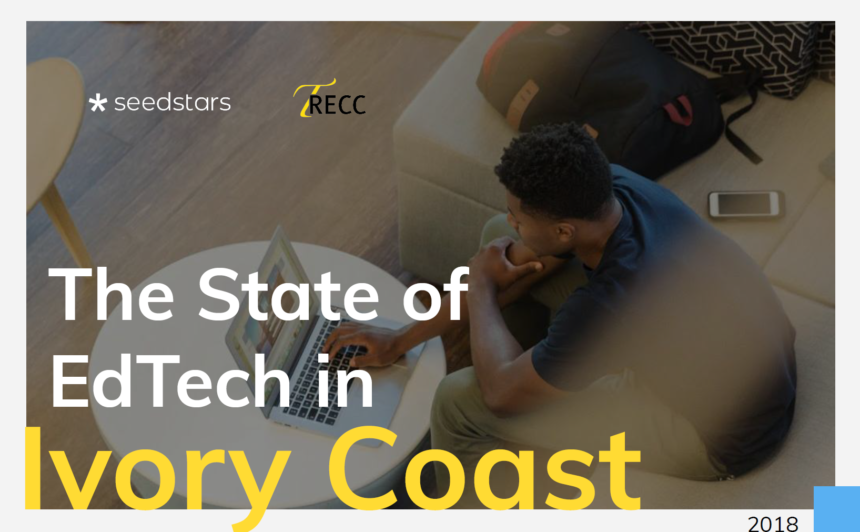Share Content
Article Link Copied
What impact is EdTech having in Ivory Coast?

Despite most of the EdTech activity and investment happening in developed markets, the potential impact of technology in economies such as Ivory Coast is even more transformational. With just 43% of the population over 15 able to read and write and only a 26% enrolment rate in secondary schools, education solutions can play a major developmental role.
Many young social entrepreneurs in Côte d’Ivoire are already hard at work to harness the potential of new technologies to extend learning opportunities
beyond the classroom but are struggling to be seen and to find the right support system. Through its Impact Finance program, TRECC wants to nurture the talent of young entrepreneurs and facilitate the growth of education start-ups in Côte d’Ivoire. Hence, it was only natural for us to turn to our long-term partner, Seedstars, to better understand the Edtech landscape in Côte d’Ivoire.
In reading this report it will become apparent that the EdTech ecosystem in Ivory Coast is still nascent and the community almost non-existent. There is
yet to be an EdTech startup to raise significant capital or reach considerable scale. In fact, just 18 startups in the education space were identified of which 11 are in the revenue generating stage. Grants of insufficient size are the main source of funding and there is a general lack of know-how about fundraising by founders.
On a more positive note, this report outlines various sectors for EdTech startups that have an attractive market size without having to go cross border. Education is a core government policy and various NGOs are active in the space. Talent is available in the market to build a successful startup so long as it can be paid for. Although the current funding situation is poor, there is a large and growing pool of investors active in Africa that are definitely within reach.
The report outlines various recommendations for the ecosystem: from encouraging more community collaboration, to developing the angel investor activity, to incentivising regional investors to step into Ivory Coast. Fortunately, both authors of this report are in a position to be part of the solutions and are keen to work with the other stakeholders towards a more impactful EdTech ecosystem.
Many young social entrepreneurs in Côte d’Ivoire are already hard at work to harness the potential of new technologies to extend learning opportunities beyond the classroom but are struggling to be seen and to find the right support system. Through its Impact Finance program, TRECC wants to nurture the talent of young entrepreneurs and facilitate the growth of education start-ups in Côte d’Ivoire. This report is funded by the Jacobs Foundation.